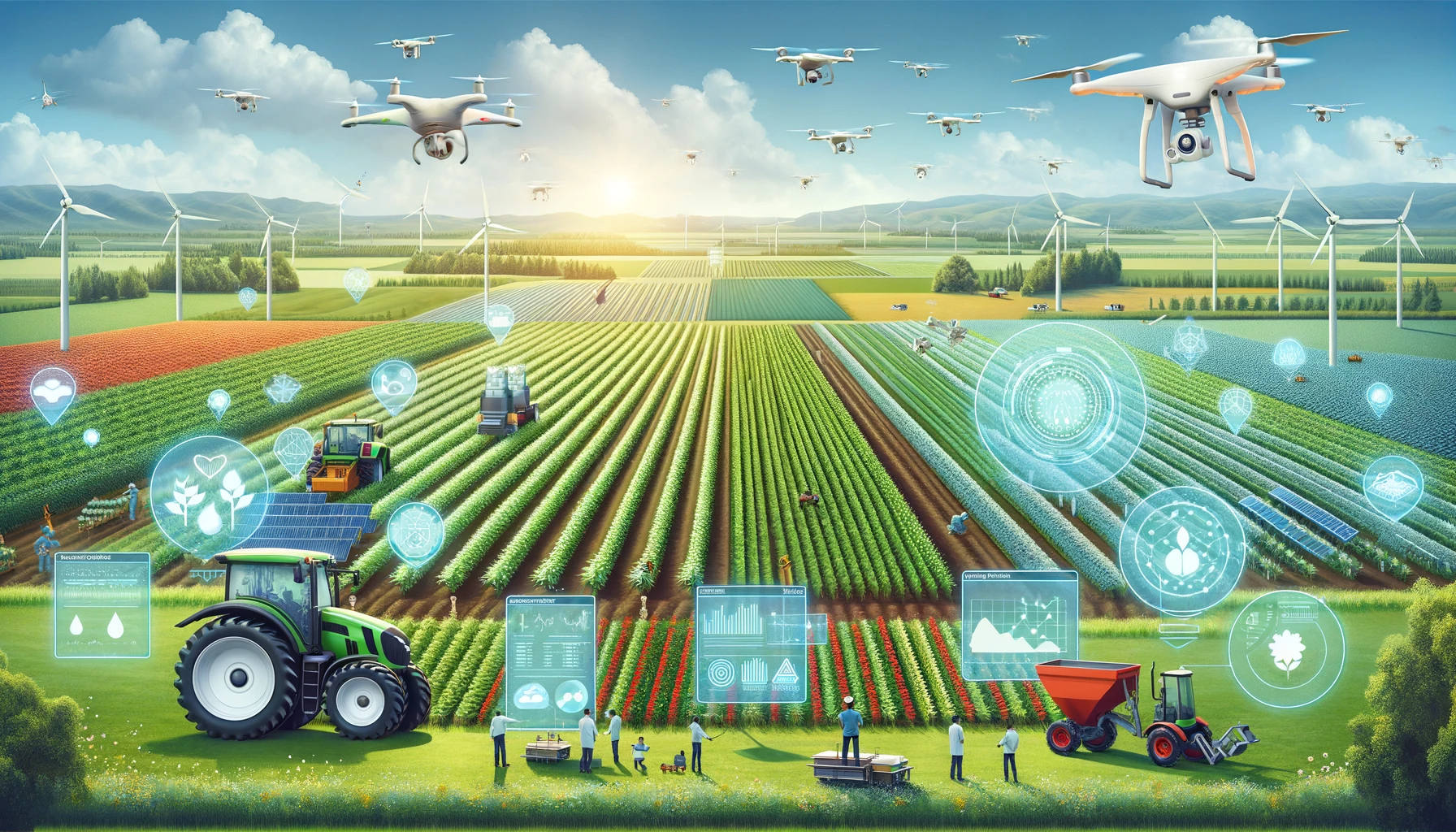Toward Responsible AI: Challenges and Trust-Building in the Future of Food Systems
The paper explores the challenges AI researchers in agriculture face regarding data access, regulations, and trust-building with farmers, emphasizing the need for ethical, collaborative approaches to develop responsible AI technologies. It calls for policies that align ethical standards with practical realities to ensure trustworthy AI in the food system.

A report written by Carrie S. Alexander, Mark Yarborough, and Aaron Smith, presents findings from researchers at the Artificial Intelligence Institute for Food Systems (AIFS), a collaboration between universities including UC Davis, UC Berkeley, Cornell University, and the University of Illinois Urbana-Champaign. The researchers explore what it means to conduct responsible or trustworthy AI research in the agriculture and food sectors. The paper addresses key challenges faced by researchers as they work to develop AI-based technologies that can improve food systems, particularly in light of ethical concerns, regulatory frameworks, and the importance of building trust among farmers and food producers.
Data Access and Ethical Dilemmas
One of the central issues highlighted in the research is the problem of data access. Researchers face significant difficulties in obtaining the field-level data needed to build accurate and generalizable AI models. This data is critical for creating AI tools that can help farmers improve yields and optimize resources, but many farmers are reluctant to share their data due to privacy concerns and uncertainty about how it will be used. The paper notes that data-sharing arrangements often involve power imbalances, where larger commercial entities, such as equipment manufacturers, are able to extract data from farmers through contracts that offer little room for negotiation. This dynamic raises ethical questions about whether farmers are truly giving informed consent when they agree to share their data, especially when they may not fully understand the potential risks and benefits of doing so.
Regulatory Hurdles in AI Development
In addition to the challenges related to data access, the paper discusses the impact of regulations on AI research and technology development in the food system. While regulations are necessary to ensure ethical practices, the researchers argue that many of the current regulatory frameworks are either insufficient or misaligned with the realities of AI development. For instance, regulations governing privacy and consent may conflict with the need for transparency and data sharing, creating dilemmas for researchers who must navigate these competing ethical standards. Moreover, the rapid pace of AI advancement often outstrips the development of new regulations, leaving gaps that make it difficult for researchers and developers to adhere to ethical guidelines. The researchers emphasize that these regulatory challenges are not limited to the academic sphere but also affect the commercialization of AI technologies, where oversight may be even more lacking.
Barriers to Adoption of AI-Based Technologies
The paper also highlights several barriers to the adoption of AI-based food technologies, particularly the mistrust that has developed between researchers, farmers, and food producers. Many farmers have been disappointed by previous experiences with AI and precision agriculture technologies that did not deliver on their promises. This has led to a perception among some that AI technologies are unreliable or even exploitative, further complicating efforts to build trust and encourage the adoption of new tools. The researchers argue that this mistrust is exacerbated by the fact that many commercial AI technologies are developed and deployed without adequate testing or consideration of the specific needs and conditions of the agricultural environments in which they are used.
Building Trust Through Long-Term Relationships
Building trust, therefore, becomes a key component of responsible AI development in agriculture. The researchers interviewed in the study believe that trust can only be established through long-term relationships with farmers and food producers, as well as a commitment to transparency and honesty about the limitations and potential risks of AI technologies. This includes acknowledging the ethical complexities involved in developing AI for the food system, where decisions about how data is collected, shared, and used can have far-reaching consequences for the livelihoods of small farmers and the affordability of food for consumers. The researchers stress that building trustworthy AI is not simply a matter of creating better technology but requires a deep understanding of the social, cultural, and economic contexts in which these technologies will be used.
A Call for Collaborative and Reflective Approaches
While the paper does not offer definitive answers to the question of who is responsible for ensuring that AI technologies are developed ethically, it provides important insights into the complexities of this issue. The researchers conclude that responsibility must be shared among all stakeholders, including academic researchers, commercial developers, farmers, and policymakers. They argue that governments and institutions have a crucial role to play in creating policies that support the development of AI technologies that are both effective and ethical. However, they also caution that these policies must be carefully crafted to avoid what some scholars refer to as "ethics-washing," where superficial ethical guidelines are used to give the appearance of responsibility without addressing the deeper issues of power and inequality that underlie the food system.
In summary, the paper calls for a more collaborative and reflective approach to AI development in agriculture, one that involves ongoing dialogue between researchers, policymakers, and the communities affected by these technologies. It highlights the need for policies that can bridge the gaps between ethical ideals and practical realities, ensuring that AI technologies in the food system are deserving of the public's trust. Without addressing these challenges, the researchers warn that the promise of AI to improve food systems and alleviate global challenges such as climate change and food insecurity may go unfulfilled.
- FIRST PUBLISHED IN:
- Devdiscourse










